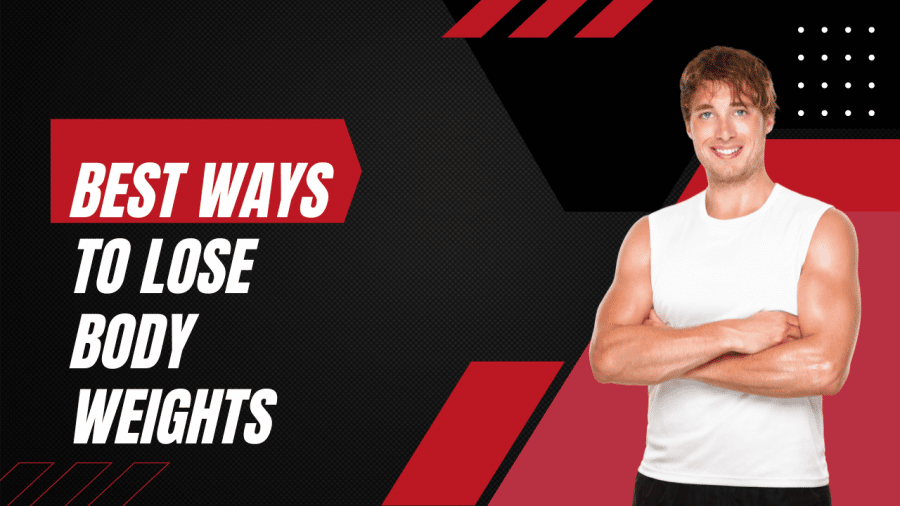Weight gain is caused by a lot of factors like genetic makeup, hormonal levels, food constitution, and the influence of some environmental factors on your sleeping habits, physical level, and stress level. All of these attributes come together to create an imbalanced energy equation. Excess weight is gained when you consume more energy from foods and drinks than you expend.
The United States government states that an average man needs about 2,700 kcal per day and an average woman needs 2,200 kcal per day. Many times, you notice some people lose weight faster than other people. This is because this set of people expend more energy than they consume from the foods and drinks they consume. If you want to shed off those excess weights, you have to create a negative energy balance by consuming lesser calories than you need for your daily activities. You also have to increase the amount of energy you burn in form of calories through more physical activities like exercising.
There are a lot of ways to reduce your body ways but here are some simple and sustainable steps that you can take to effectively reduce your body weight:
Exercising
Aside from dieting, exercising is one of the most common strategies to lose weight. It burns calories and increases the body's metabolism, which plays a principal role in weight loss.
Moderate-intensity aerobic activities that raise the heart rate and break a sweat, such as riding a bike, dancing, walking briskly with your dog, or shooting a basketball, while vigorous-intensity aerobic activities are those done with a large amount of effort resulting in higher heart rate and rapid breathing. Examples are running, heavy lifting, hiking, resistance tubing, resistance paddles in the water, etc. Read on WellTech to find out how many minutes of exercising you need to do every week for an effective weight-loss exercise program.
Summarily, do not over-train, as this might work against weight loss because it can put too much strain on your body and land you on the bench. If you are not sure how many exercises you should be doing, try to work with a certified trainer. All exercises are good but some are specifically tailored to help you lose weight faster.
- Jump rope:
This calorie-busting workout can burn up to 318 calories every 30 minutes. While doing that, the heart is not the only muscle that is working hard because it also involves the arm and shoulder. Other aerobic exercises like swimming, jogging, running, and brisk walking work similarly to jump ropes and can help you lose weight effectively.
This is a physical activity designed to improve muscular strength and fitness by exercising a specific muscle's external resistance. Examples include using a resistance band, lifting weights, crunches, pull-ups, leg squats, push-ups, etc.
- Yoga
The combination of Yoga and healthy eating has proven beneficial as it helps to lose weight and keep your body and mind healthy. It also improves your mindfulness and stress management.
Eat High protein diet
A study has shown that eating a high protein diet may help a person feel full, which leads to them eating lesser calories in general . High protein diets generally mean including great quantities of protein and just a tiny amount of carbohydrates in one's diet. Example includes:
- Chicken breasts.
- Fish and seafood – fish, prawns, crab, lobster, mussels, oysters, scallops, clams, and shrimp.
- Eggs- One egg contains about 7 grams of protein. Do not hesitate to eat the yolk as it contains most of its nutrients.
- Nuts and seeds, such as peanuts.
- Plant protein shakes, lentils.
- Chickpeas -contain a moderate amount of calories and several vitamins and minerals. They are also a good source of fiber and protein.
- Oats.
- Dairy products, like Greek yogurt, cow milk, or cheese - Milk and other dairy products are nutrient-concentrated foods. They give you energy and high-quality protein. They also give various essential micro-nutrients like calcium, potassium, magnesium, zinc, and phosphorus.
- Vegetables such as broccoli, carrots, and beets are fiber-rich proteins.
The type of diet you are on depends entirely on how fast you lose weight. Note, in a case where you are keen to get results as quickly as possible, one might end up doing it the wrong way. These are what you need to avoid when trying to lose weight.
- Processed foods - Processed ready-made foods like baked goods and ready-made meats, can have bad effects on your health as they are usually high in sugar, trans fat, and refined carbohydrate which eventually contributes to obesity.
- Sugary beverages - Beverages like soda, fruit juices, and energy drinks contain a high quantity of sugar. Studies have shown there is an association between consuming sugar-sweetened beverages and excess weight gain in children and adults. 2015 - 2020 dietary guidelines for Americans recommend that people limit calories from added sugars to slightly above 10 percent of their total daily intake, which is around 12 teaspoons for a 2,000-calorie diet (4).
Intermittent Fasting
This is another effective way of losing excess body fat. You might wonder, what is intermittent fasting? It is all about when to eat. It is an eating pattern that circles between periods of fasting and eating. With intermittent fasting, you only eat during a specific time called the feeding window, where you can eat without restrictions. There is a fasting window, a period where you can not eat but can have drinks such as green tea, water, or coffee because staying hydrated is very important.
Several studies have shown that in a short period, intermittent fasting can lead to weight loss in obese individuals . Apart from the highest benefit of intermittent fasting, which is to lose weight, it also helps cognitive improvement, reduces inflammation, controls blood glucose levels, and reduces insulin levels in case of diabetes.


